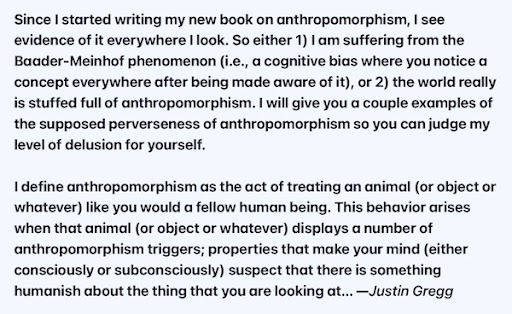Truth and democracy in an era of misinformation
Concern about misinformation and its toxic effects on democracy is widespread. A survey of nearly 1500 experts by the World Economic Forum ranked misinformation and disinformation (the latter being intentionally spread, whereas the former may arise accidentally) as the top global risk during the next 2 years. Examples of misinformation-fueled events abound. In the United States, baseless claims about election fraud in 2020 by the losing presidential candidate, Donald Trump, culminated in a violent insurrection against the US Capitol on 6 January 2021. At the time of this writing, Haitian immigrants in Springfield, Ohio, are fearful of the future after Trump baselessly alleged on national TV that immigrants there were eating their white neighbors’ pets—a racist trope dating back centuries...Although specific instances of disinformation-fueled tragedies can be readily identified, the scientific landscape surrounding misinformation is sufficiently nuanced to require careful unpacking. Two intertwined issues are particularly challenging: the adjudication of what exactly constitutes misinformation and the identification of the intentions of the communicator, the latter of which is crucial to differentiating misinformation from disinformation.
We know that NASA landed astronauts on the Moon. We know that the COVID-19 pandemic was not caused by 5G telecommunications equipment. We know that Trump did not fake having COVID-19. We know that there was no widespread irregularity or fraud during the 2020 US presidential election. Those are facts, established with sufficient certainty that, in the words of the late Stephen Jay Gould, “it would be perverse to withhold provisional assent.” Any attempt to refute them can be unambiguously labeled as misinformation. It is unsurprising, therefore, that independent professional fact-checks of false claims have been found to not only correlate highly with one another but also with the ratings of bipartisan samples of the public.But just because truth can often be readily ascertained, it does not follow that facts can always be unambiguously identified ... The existence of such ambiguity and contestation should provide the impetus for us to hone our evidentiary skills in adjudicating competing claims, in the same way that, throughout the history of science, uncertainty has stimulated development of better theories and methodologies to resolve challenging issues.The existence of ambiguity does not license the claim that researchers should stop studying misinformation altogether, as some have suggested by appealing to the difficulty of adjudicating competing claims ... [R]esearch on misinformation identified the decades-long disinformation campaign by the tobacco industry that has contributed to the deaths of millions of people, despite the fact that the truth value of some specific assertions is difficult to adjudicate.The existence of ambiguity also does not license the willful dissemination of falsehoods ... But even accepting that ethical imperative, how can we identify when a communicator is intentionally spreading disinformation rather than inadvertently misinforming others? How do we know that Trump’s “big lie” about the 2020 election is really a lie?By definition, lies are intentional, and it is therefore unsurprising that they can leave fingerprints that differentiate them from truthful information.
At the level of individuals’ speech, many machine learning models exist that can identify willful deception from text, often with accuracies exceeding 90% ...At an institutional level, the legal system is no stranger to ascertaining intentionality on a daily basis. Inferring intentionality is the difference between manslaughter and murder, and the concept of perjury rests precisely on the identification of willful lies ...The fact that the legal system is anchored in the notions of truth, honesty, and evidence entails two additional ways in which willful dishonesty can be identified. First, there are instances in which even literal truths can be found to be deceptive and hence subject to legal sanctions, for example, when sellers fail to disclose all relevant information about a product even though they truthfully report some of the information. Identifying truthful but misleading or deceptive information is particularly crucial in light of research that has found the impact of misleading information about COVID-19 vaccines to be greater overall than that of clearly false information. Second, because the penalties of lying to the court are severe, lawyers tend to be painstakingly honest in court. Hence, when they or their clients make statements in public that differ from those made in court, willful dishonesty in public can be inferred.
We know that Trump’s “big lie” about the election was a lie because his public accusations of fraud were made at the same time that his lawyers, who filed more than 60 (unsuccessful) lawsuits to overturn the election results, admitted in court that there was no evidence of fraud. Two lawyers who did claim fraud were sanctioned and fined by a federal judge ...Although politics differs from jurisprudence, democracy similarly requires some degree of epistemic integrity. For example, citizens must know that elections are fair and that an incumbent will transfer power peacefully when voted out of office. Democracy also requires reliable shared knowledge for meaningful debate and to ensure normatively good policy outcomes ...In summary, identifying the truth value of some assertions can be difficult, but that does not make clear falsehoods any less false. Similarly, it can be difficult to infer the intentions of a communicator, but that does not mean lies are suddenly truths, and it does not mean we cannot (or should not attempt to) identify lies. On the contrary, the distinction between truth and falsehood and the ability to infer intention has been at the heart of jurisprudence for centuries if not millennia, and the impetus and frameworks for making these distinctions are similarly critical to ensuring the integrity of democratic societies. Relinquishing these principles is unthinkable.
Goes to my prior post on Artificial Arguments.
32 days to election day. Ahhhh... The Daze of Our Lives.
__________
Exactly one month to election day. I Finished Matthew Taylor's bracing book The Violent Take It By Force.
Couple of Money Quotes.
So, any and all manner of human logical & evidentiary "reason-based" arguments are irrelevant in the face of Biblical citations and summary "prophetic apostolic" assertions?
Silly me. A Science of Deliberation? Why bother?
Below: These are the lind of dopes we face.
_____
I minimally commend to you these two books for close study ASAP, one month out from Election Day.
Cited Ari's book here.
SUNDAY UPDATE
"On Sept. 28, JD Vance spoke at a Christian political event hosted by the most influential religious leader you’ve probably never heard of.
His name is Lance Wallnau, and he is one of the chief proponents of a radical religious doctrine called the Seven Mountain Mandate. He’s an election denier. He’s said Kamala Harris engaged in “witchcraft” in her debate with Donald Trump and that an “occult spirit” is working “on her and through her.” And he’s a leader of one of the most dangerous political factions in America: the religious movement that helped fuel the insurrection at the Capitol on Jan. 6, 2021.
In fact, as Matthew Taylor wrote in his important new book, “The Violent Take It by Force: The Christian Movement That Is Threatening Our Democracy,” Wallnau himself was instrumental to the insurrection. “I sorted through hundreds of social media profiles of Christians who were present for the riots and the protests at the U.S. Capitol on Jan. 6,” Taylor said, “Strikingly, a common denominator you can find across many of those accounts are clips of Wallnau’s Facebook Live rants and links to episodes of ‘Flashpoint’” — a program on a Christian television network called the Victory Channel."... [NY TIMES]
Read all of it.
Tangenitially apropos:
My TwitterX observation:
Uhhh… “RELIGION,” anyone? Jumps right off the pages, for me. “King,“ “Lord,“ “worship,” “God said,”… etc. anthropomorphism.Justin Gregg.
BUT WAIT! THERE'S MORE!
Facebook friend posted about this.
On July 15, when former President Donald Trump first appeared at the Republican National Convention in Milwaukee, he brought along two new accessories. One was a large bandage covering his ear, which had been nicked by a would-be assassin’s bullet. The other was Ohio’s first-term senator and Hillbilly Elegy author JD Vance, who was about to debut as the GOP vice presidential hopeful.
Two days later, after paying tribute to his wife, Usha—the child of immigrants from India—and their three biracial kids, Vance portrayed a vision of America that resonated deeply with Trump voters. “America is not just an idea,” he said solemnly. “It is a group of people with a shared history and a common future. It is, in short, a nation.”
To many viewers at home, this seemed like the stuff of a boilerplate, patriotic stump speech. But the words “shared history” lit up a far-right evangelical corner of social media. “America is a particular place with a particular people,” Joel Webbon, a Texas pastor and podcaster, wrote on X. “This is one of the most important political questions facing America right now,” posted former Trump administration official William Wolfe. “Answer it wrong, we will go the way of Europe, where the native-born populations are being utterly displaced by third world migrants and Muslims. Answer it right, and we can renew America once more.”
Vance was embracing one of their most cherished beliefs: America should belong to Christians, and, more specifically, white ones. “The American nation is an actual historical people,” says Stephen Wolfe (no relation to William), the author of the 2022 book The Case for Christian Nationalism, “not just a hodgepodge of various ethnicities, but actually a place of settlement and rootedness.” For this group of evangelical leaders, Vance, a 40-year-old former Marine who waxes rapturous about masculinity and women’s revered role as mothers, was the perfect tribune to spread their gospel of patriarchal Christian nationalism...
The Case For Christian Nationalism?
Not buyin' this one.You can read the Amazon preview if you've time to waste.
A lengthy review here: "The Rise of Right Wing Wokeism" (pdf).
I first encountered Stephen Wolfe, through his writing, when I was doing my doctoral work. We were both working on similar intellectual themes and looking at similar sources. I quoted Wolfe—who has a PhD from Louisiana State University and is now a “country scholar at Wolfeshire”—once or twice in my dissertation. Since then, I’ve read an article here or there from Wolfe and have tracked with some of his comments on Twitter. When I saw that he had a massive book coming out making The Case for Christian Nationalism, I was eager to read a serious exploration of such a timely and controversial topic.And, we have @TheTheoBros on TwitterX.
This is a long review, so let me state my conclusion up front: I understand and sympathize with the desire for something like Christian Nationalism, but if this book represents the best of that ism, then Christian Nationalism isn’t the answer the church or our nation needs. For all the fine retrieval work Wolfe does in parts of the book, the overall project must be rejected...
I've started following them. LOL. Have to wonder whether it's a spoof site.
BTW: Learned a new word today: gynocracy.
More to come...
_________











No comments:
Post a Comment